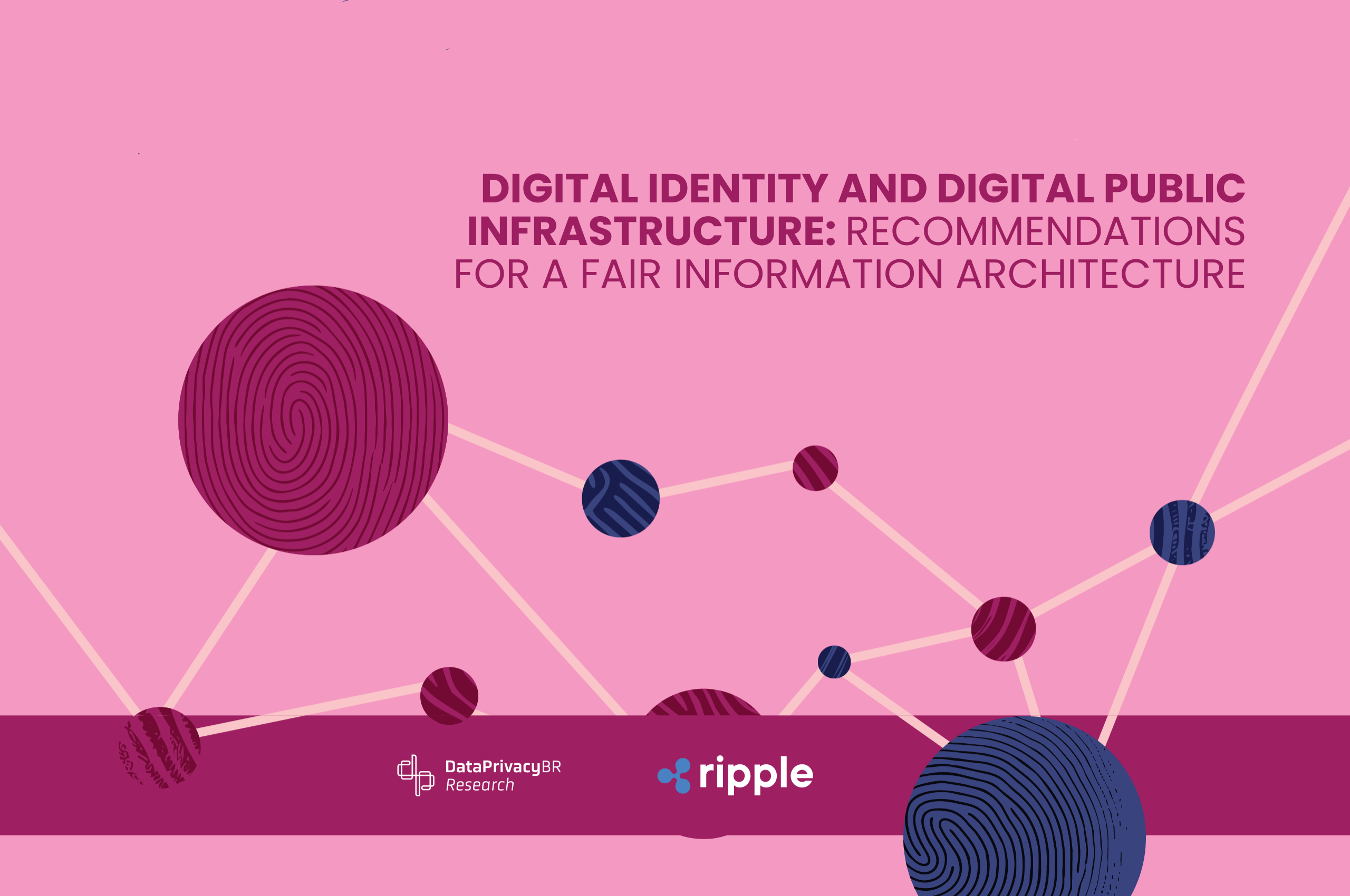Report | Citizen’s Architectures in Digital Identities | Governance and Regulation
Report | Digital Identity and Digital Public Infrastructure: recommendations for a fair information architecture

Data Privacy Brasil launches its new report entitled “Digital Identity and Digital Public Infrastructure: recommendations for a fair information architecture”. The study examines the impact of a Digital Public Infrastructure (DPI), especially digital identity applications, on the protection of personal data in light of the Brazilian Federal Constitution (CF) and the General Data Protection Law (LGPD).
The report aims to understand how the DPI and digital identity ecosystem relate to, create tensions with, and shape the exercise of fundamental rights, particularly through the lens of data protection as an eminently procedural right. Which aims to establish parameters to ensure that the information flow in the DPI is fair and promotes rights.
The increasing digitalization of society and government services requires the creation of a robust and reliable DPI so that people can interact securely with the infrastructure’s applications. In this sense, digital identity functions as a gateway to DPI and therefore plays a crucial role in accessing essential services and products. However, the use of personal data in digital identity systems raises significant concerns about data protection, self-determination, and the intensification of existing inequalities.
Given the complexity of this scenario, this new report serves as an essential tool for building a DPI that promotes a fair and inclusive flow of data, including personal data, and that complies with the fundamental right to data protection. The report is a call to action for governments, the private sector, and civil society, emphasizing the importance of collaboration between various stakeholders to ensure that DPI is an instrument of social development and public value. And not a tool of control or exclusion.
Based on a data protection reading of identity applications in DPI, the following are among the main findings discussed in the report:
- The implementation of data protection and accountability mechanisms is essential to ensure public value for IPD, in addition to promoting trust and security in the infrastructure;
- The principle of informational separation of powers must be applied to identity systems in IPD;
- In IPD, consent is understood as one of the legal bases that justify data processing, but it is not the only one nor always the most appropriate;
- The active participation of different sectors of society is essential for the development of a fair and citizen-friendly IPD, ensuring that identity systems serve the public interest;
The challenges and risks of implementing digital identity systems as a tool in IPD are being mapped and understood with the development of IPD solutions themselves. It is in this sense that the report deepens the debate on the intersection between identity, IPD, and data protection, precisely to identify possible tensions and areas for improvement.
The study is part of the project “Citizen Architectures in Digital Identity”, which has the support of the Ripple Institute and aims to map the intersection between digital identity and data protection in a context of developing a public digital infrastructure, including with the participation of other actors beyond the public authorities.
The report “Digital Identity and Digital Public Infrastructure: recommendations for a fair information architecture” is now available for download; access it here! Enjoy your reading!
DataPrivacyBr Research | Content under licensing CC BY-SA 4.0
